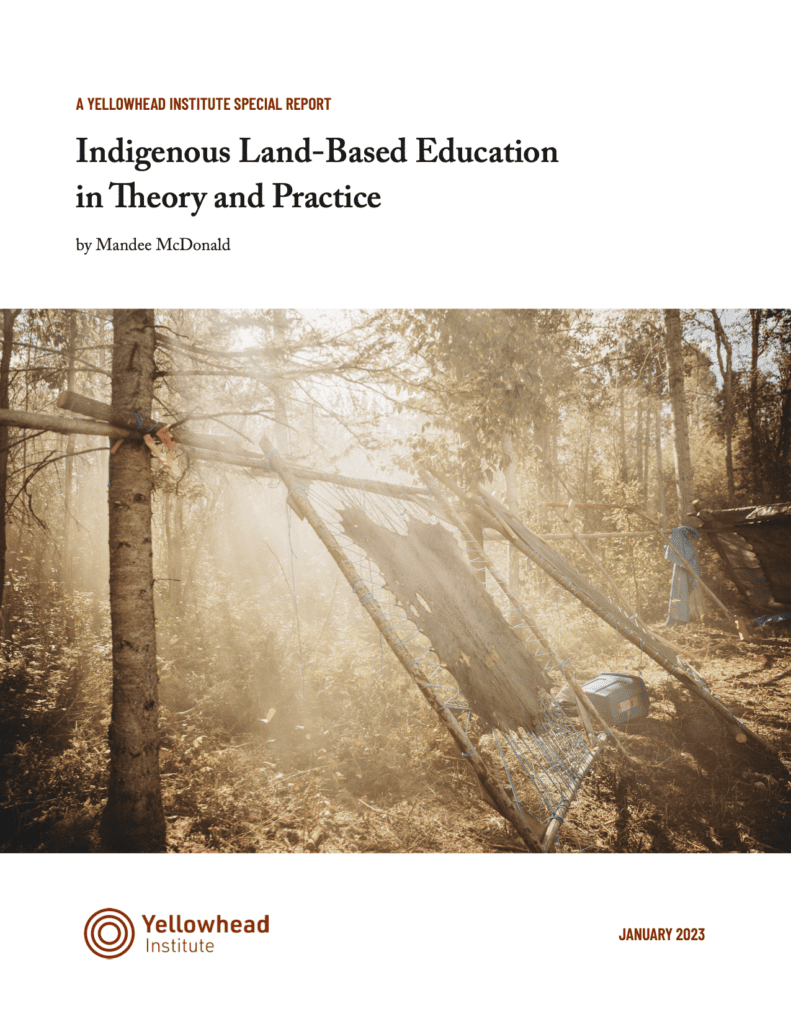- About
- Research
-
-
- Special Reports & Features
- Pretendians and Publications: The Problem and Solutions to Redface Research
- Pinasunniq: Reflections on a Northern Indigenous Economy
- From Risk to Resilience: Indigenous Alternatives to Climate Risk Assessment in Canada
- Twenty-Five Years of Gladue: Indigenous ‘Over-Incarceration’ & the Failure of the Criminal Justice System on the Grand River
- Calls to Action Accountability: A 2023 Status Update on Reconciliation
- Data Colonialism in Canada’s Chemical Valley
- Bad Forecast: The Illusion of Indigenous Inclusion and Representation in Climate Adaptation Plans in Canada
- Indigenous Food Sovereignty in Ontario: A Study of Exclusion at the Ministry of Agriculture, Food & Rural Affairs
- Indigenous Land-Based Education in Theory & Practice
- Between Membership & Belonging: Life Under Section 10 of the Indian Act
- Redwashing Extraction: Indigenous Relations at Canada’s Big Five Banks
- Treaty Interpretation in the Age of Restoule
- A Culture of Exploitation: “Reconciliation” and the Institutions of Canadian Art
- Bill C-92: An Act respecting First Nations, Inuit, and Métis Children, Youth and Families
- COVID-19, the Numbered Treaties & the Politics of Life
- The Rise of the First Nations Land Management Regime: A Critical Analysis
- The UN Declaration on the Rights of Indigenous Peoples in Canada: Lessons from B.C.
- View all reports.
- Special Reports & Features
-
-
- Yellowhead School
- The Treaty Map
- LIBRARY
- Submissions
- Donate
This Special Report considers the recent and relevant academic and other publicly available literature, including policy documents and program reports representing both Indigenous and non-Indigenous perspectives on the theory and practice of land-based programming.
A review of this literature finds an extensive record of the benefits of land-based programming for Indigenous peoples’ mental and physical health and positive learning outcomes for students of Western place-based education models. Not surprisingly, then, the number of land-based programs has increased dramatically over the past ten years. The specific themes that emerged from this research revolve around, 1) Indigenous Self-Determination, 2) Health and Well-Being, 3) Environmental Stewardship, 4) Reconciliation and Climate Justice, and 5) Evaluation Methodologies. Each of these is elaborated upon in the report, which land-based program providers, funding agencies, and policymakers will find useful for several purposes – namely, for understanding and explaining theory and practice but also demonstrated value and benefits of Indigenous land-based programming.
KEY QUESTIONS
What are the similarities and differences between Indigenous land-based programming and Western models of place-based education? What are the valuable impacts and challenges of land-based programs on health & well-being, environmental stewardship, reconciliation & climate justice, and Indigenous self-determination?
Most, if not all, land-based programs are designed to result in multiple interrelated outcomes and benefits for human mental, emotional, and physical health; environmental stewardship; cultural confidence and Indigenous knowledge; technical and practical skills; and enhanced understanding of and proficiency with critical concepts like settler-colonialism, governance, and Indigenous self-determination.
- mandee mcdonald
AUTHOR

Mandee McDonald
York Factory First Nation & Sǫ́mbak'è
PHOTOGRAPHER

Jamie Stevenson
Tłı̨chǫ | Northwest Territories



